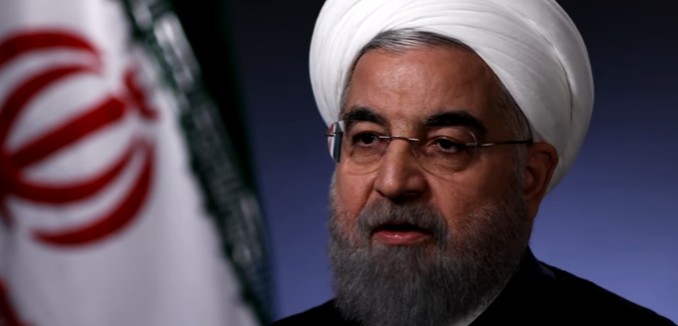Adam Kredo of Washington Free Beacon reported this week that Iran was possibly maneuvering to back out of the 2015 nuclear deal, known as the Joint Comprehensive Plan of Action (JCPOA), it made with P5+1 nations (United States, Russia, China, United Kingdom and Germany).
Kredo noted that Iran has catalogued a list of 18 purported violations of the nuclear deal by the U.S. and has reportedly sent the list to Federica Mogherini, the European Union’s high representative of the Union for Foreign Affairs and Security Policy, one of the parties to the deal.
Heshmatollah Falahatpisheh, a leading Iranian MP, said earlier this week that the list constitutes “blatant” violations of the nuclear agreement by the U.S.
A State Department official who spoke to the Free Beacon dismissed the Iranian accusations and said that “the United States continues to meet its commitments under the JCPOA.”
One source told Kredo that the Iranians never intended to abide by the deal and now that the Trump administration seems intent on strengthening the deal to eliminate sunset provisions and improve verification, Iran is looking for a way out of the JCPOA while blaming it on the U.S.
While Iran has been accusing the U.S. of failing to meet its JCPOA obligations since Implementation Day—even when Barack Obama was still president—it appears that Iran may be more serious about its current claims against the U.S.
It might seem odd that Iran would abandon a deal that was implemented less than two years ago, but in 2005 it abandoned a deal it made with the EU3 (United Kingdom, France and Germany) less than ten months earlier.
In November 2004, Iran agreed to stop enriching uranium in exchange for political and economic considerations from the EU3. Over the next ten months Iran regularly charged that the Europeans were not holding up their end of the deal, and, in August 2015 resumed enriching uranium in violation of the 2004 deal and prompting the U.S. and Europe to bring the matter of Iran’s nuclear program to the Security Council. This led to the imposition of at least six U.N. Security Council resolutions condemning Iran as well as the imposition of U.S. and European sanctions.
Iran’s violation of the 2004 nuclear deal wasn’t the first time Iran violated a nuclear deal with the West. It also violated an earlier deal in 2003. The New York Times described what happened:
The foreign ministers of the three countries brokered a deal, announced with much fanfare in Tehran 13 months ago. In it, Iran agreed to suspend its production of enriched uranium, which can be used in nuclear energy or nuclear weapons programs, and to submit to more intrusive inspections of its nuclear facilities.
After Iran violated the agreement, officials from the three countries acknowledged that the deal had been made too hastily and that the language of the final accord was too vague and open to misinterpretation.
The lead negotiator for the two earlier deals was Hassan Rouhani, currently Iran’s president. When he was first elected president his earlier role as a nuclear negotiator was mentioned. The Christian Science Monitor, for example, described him as negotiating “the only nuclear deal in which Iran agreed to suspend uranium enrichment.”
The Monitor also noted that in a 2004 speech he admitted that during negotiations Iran was perfecting the process of uranium enrichment. “While we were talking with the Europeans in Tehran, we were installing equipment in parts of the facility in Isfahan,” Rouhani boasted. “By creating a calm environment, we were able to complete the work in Isfahan.”
During the 2013 Iranian presidential campaign, Rouhani reinforced his claim that the earlier nuclear negotiations were meant to give Iran the chance to advance its nuclear technology. After being attacked during a debate for suspending Iran’s nuclear research, Rouhani responded, “We suspended the program? We completed the program.”
By Rouhani’s own admission, it appears that Iran used earlier negotiations as a tactic to reduce international pressure and scrutiny. Once Iran achieved what it sought, it abandoned the deal. Because it hadn’t secured a buy-in from the U.S., Iran was vulnerable diplomatically and the U.S. rallied the international community to impose sanctions on Iran for its nuclear violations.
The JCPOA was implemented with a UNSC resolution, which made the U.S. a party to the deal. Any hint that the U.S. might be wavering on continuing to honor the deal—despite Iranian violations—has provoked objections not only from Iran, but from other members of the P5+1.
Will Iran now use its 18 purported U.S. violations of the deal as a means to escape the constraints of the deal, knowing that there are many in the international community who will blame the U.S. for scuttling the deal?
[Photo: NBC News / YouTube]




